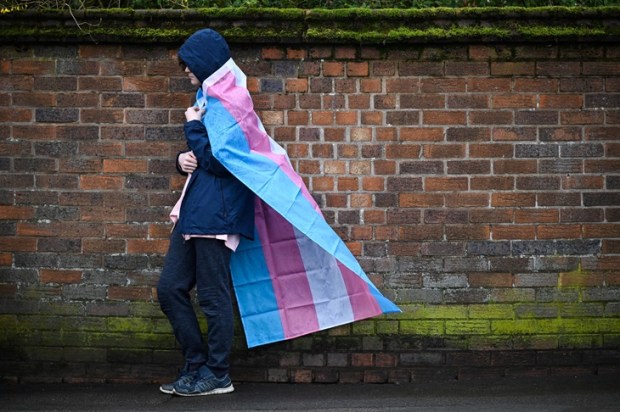Waleed Aly was technically correct, but perhaps discourteous, in the way he expressed the socio-economic difference seen within voting patterns of the Voice to Parliament referendum.
Aly observed that there was a clear distinction in education levels between those who voted ‘Yes’ and those who voted ‘No’ at the referendum. As he described it, the more educated you were, the more likely you were to vote ‘Yes’.
A starting place for examining this claim is to note that this statistic is a correlational observation. Someone’s level of formal education is but one aspect of who they are. Having the opportunity for more education and taking that opportunity can, of course, be important for any number of personal reasons.
But in our current era, to have a more formal education does not necessarily lead to more wisdom. ‘Wisdom’ is being able to live in grace and truth. It is how to understand what is good – personally and socially – and to live that way in a manner that helps others on the same journey.
It is easy to see how these two aspects of life can become distorted. The desire to help others becomes disoriented when we have no truth markers on which we all agree. Trying to help others without knowing what is true is like sailing and trying to avoid all winds. It means the sailing may be smooth, but pointless, because there is no set destination.
On the other hand, trying to pursue truth at all costs is like sailing regardless of the conditions. The fixation towards the end point means being careless about the welfare of those on the boat.
A person with a mature education understands this tension and seeks wisdom. And if Jonathan Haidt’s Moral Values Framework is correct, the pattern of seeking wisdom is different for those who call themselves progressives (surely now a highly disputed label), and those who wish to be conservators (to use Michael Walsh’s term).
We can see that our universities have been increasingly occupied by those who do not wish to conserve the best of the Judeo-Christian ‘Western’ heritage. They wish to bring in an economically centralised system of finance, and a social system whereby worth is attributed by category. As Roger Scruton described it with almost brutal honesty in his Fools, Frauds and Firebrands:
Leftists believe, with the Jacobins of the French Revolution, that the goods of this world are unjustly distributed, and that the fault lies not in human nature but in usurpations practiced by a dominant class. They define themselves in opposition to established power, the champions of the new order that will rectify the ancient grievance of the oppressed… Two attributes of the new order justify the pursuit of it: liberation and ‘social justice’.
His final two characteristics align with Haidt’s observations – that those who nominate the ‘Left’ as their ideological frame, focus on ‘care/harm foundation, with additional support from the fairness/cheating and Liberty/oppression foundations’. With reference to the Voice referendum, this so-called educated class claimed they cared more deeply and correctly than anyone else – ‘it is what they (being Aboriginal people) want’. This demographic insisted they were being fairer – ‘it is just a modest request’. They even claimed they knew how to conquer oppression – ‘we will fix all those bad things that happened!’
In the abstract, none of this is bad per se, but such an isolated way of thinking is distorted. It is out of touch with a wiser understanding of our life as citizens together. It is the opposite of wisdom. In other words, it is foolishness. As both Scruton and Haidt note, there is more to life. Haidt completes these three initial foundational moral values with three more. The set is complete with the addition of authority/subversion, loyalty/betrayal, and sanctity/degradation.
What he calls Conservatives use all six, because they have respect for the rule of law – ‘we are concerned about our Constitution’; they are loyal to their people and place – ‘we want to all be Australians’; and they believe in some aspects of life being sacred – ‘we will not let the elites take these things from us’.
The mistake of many media commentators hailing from left-leaning publications is a failure to see what the ‘more formally educated’ have been invited to believe. It is an ideology that narrows understanding of society through a relational stance of condescension. They have been more educated towards foolishness. As Jennifer Oriel has noted in her chapter on universities in Donnelly’s book on cancel culture: ‘In the place of the civilising campus has come the banal, brutalising education of the revolutionary college.’ Oriel also explains how this shift towards neo-Marxism was fuelled by a ‘new proletariat class: radical minorities’.
So, one must ask – is this what is meant when one says one comes from a ‘more educated suburb’? Does this claim mean that you are better equipped to reject what is good and true from our social history? Does it mean that you are more eloquent in freely riding over other’s freedom because you are now liberated to shape relationships into your own image? Does being more educated in Australia mean you are at risk of being a deeper fool, and not of the ironic kind in Shakespeare? Or is it as per Scruton’s description: ‘Likewise the goal of ‘social justice’ is no longer equality before the law, of the equal claim to the rights of citizenship, as these were advocated at the Enlightenment. The goal is a comprehensive rearrangement of society.’
Such blindness is why a minority in Australia will not understand the wisdom of those outside of their so-called progressive enclaves. Indeed, without a shift in beliefs, their values, although thinly cased in civility, will continue lead them to being the ‘destructives’, tearing apart that which is good towards an abyss of their own making.
In contrast, as the research by Putnam and Campbell noted, the daily wisdom that keeps our world more civil is enacted by ‘those others’ out there in the suburbs, who are ‘more generous with their time and money, especially in helping the needy, and they are more active in community life’. And yes, as this research noted, they are often the religious who are the more caring and respectful ones in our world.

























